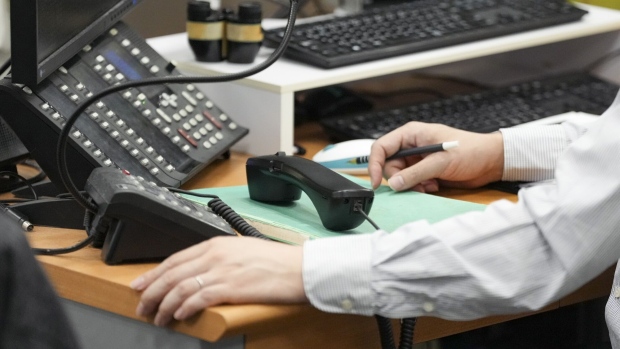Apr 22, 2024
Hedge Funds Snap Up Japan Rates Traders in Bet on Comeback
, Bloomberg News

(Bloomberg) -- The upending of Japan’s government bond markets after almost a decade of predictability has sparked a flow of rates traders from banks to hedge funds offering the prospect of much higher pay.
More than a dozen have left firms including Morgan Stanley and Citigroup Inc. over the last 18 months as the Bank of Japan’s unwinding of monetary stimulus creates the volatility needed to make money from trading, according to people familiar with the matter.
Several more departures are likely in the next few months, the people said, who asked not to be identified discussing private information. Investment banks typically pay out around 3% of profit that a trader generates as bonus, said Yoshiki Kumazawa, a director at search firm Morgan McKinley. It can rise to around 20% for hedge funds, although the figure varies greatly among them, he said.
That’s reshaping a market that numbers only around a hundred traders in total at big banks, by some estimates. Billionaire Michael Platt’s BlueCrest Capital Management and UK-based Capula Investment Management have been among the most aggressive hirers, the people said. Izzy Englander’s Millennium Management and Singapore hedge fund Dymon Asia Capital have also picked up multiple recruits.
“Banks have lost a lot of traders to hedge funds,” said Alistair Ramsbottom, a manager at Tokyo-based financial recruiting firm Divine Solutions Japan. “All the funds are on the look out. As soon as someone comes up, they want to meet.”
The development underscores how rates traders in Japan are in high demand after years in the doldrums. The nation’s central bank set a limit on 10-year Japanese government bond yields in 2016 in a bid to revive a stagnating economy. A byproduct of maintaining its vice-like grip on the market was that it left little chance for traders to profit from price movements.
In March, the BOJ abandoned the experiment and scrapped negative interest rates after eight years. The central bank will have its policy meeting this week.
Trader Hires
Seiji Jikan, who was appointed managing director at Morgan Stanley just three months ago, is poised to join a hedge fund, the people said. Takumaru Kishimoto is set to join Brahman Capital Management Pte from the US lender, they said. BlueCrest recently hired Yosuke Motegi from Citigroup after adding two yen rates traders over the previous quarters from other banks, they added.
Representatives for Capula, BlueCrest and Brahman declined to comment. Motegi did not respond to Bloomberg requests for comment, Jikan couldn’t be reached for comment while Kishimoto declined to comment.
Spokespeople for Morgan Stanley and Citigroup also declined to comment.
Hedge funds are hiring from local players too, like Nomura Holdings Inc. and Mizuho Financial Group Inc.’s securities arm, as the market comeback gives way to concern about the limited talent pool and the need for traders who have experienced the bond market outside of yield curve control.
“Hedge funds and other institutions are actively recruiting Japanese yen traders to overcome this shortage,” Shigeru Nonomura, a managing director in global markets at Nomura, told a conference in Tokyo on April 18.
Read More: Hedge Funds at War for Top Traders Dangle $120 Million Payouts
Given the boom in business, banks are giving bond traders higher pay even as staff in other units receive bonus cuts. That situation could persist should the hiring competition intensify, Bloomberg Intelligence analyst Hideyasu Ban said.
Such sweeteners are key to retaining staff. Hedge funds can offer their traders much bigger overall payouts than investment banks, albeit with less job security and stricter performance reviews. What’s more, it’s difficult for banks to hire staff back from the funds, which are often among their biggest clients.
Hedge funds started to look for yen rates traders around 2022, when speculation intensified that inflation, fueled by the yen’s weakening, could cause the BOJ to dial back years of unprecedented monetary easing.
Lately, that search has accelerated as JGB trading picks up and investors wager on the BOJ’s next move after its first interest rate hike in 17 years. The central bank’s former executive director in charge of monetary policy said it will likely follow up by increasing its policy rate to 0.25% in September.
“The traders market is tight,” said Nomura’s Nonomura. “I expect this environment to continue for some time because we need time to develop new talent.”
--With assistance from David Ramli, Bei Hu, Ambereen Choudhury and Ruth Carson.
©2024 Bloomberg L.P.






